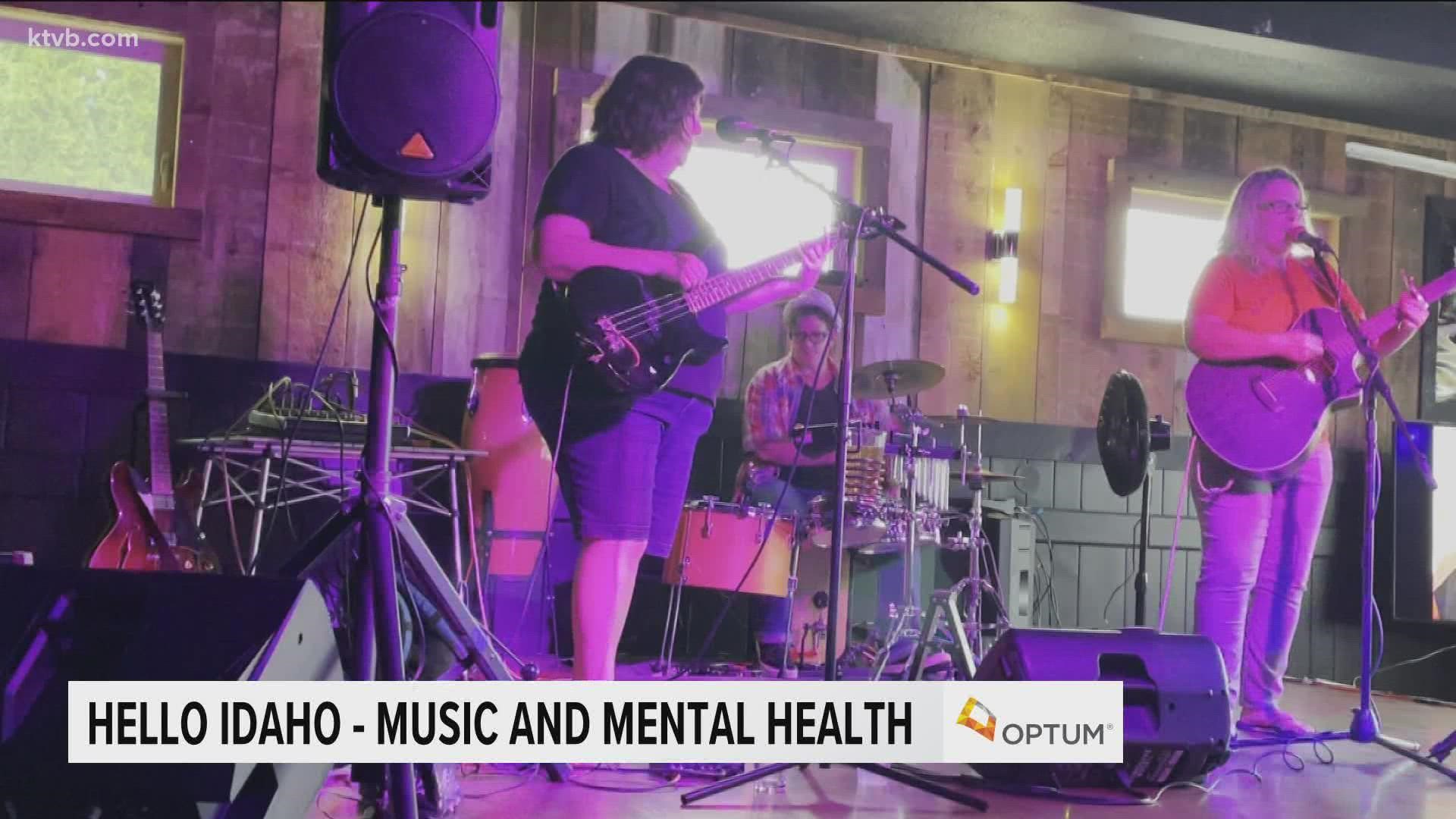GARDEN CITY, Idaho — On a recent Wednesday night the band made up of Jenn Snyder, Meghan Watters and Rochelle Smith pleased the crowd at The Somewhere Bar in Garden City. Playing music makes them feel good, too. Rochelle Smith says, for her, music is unity and healing, bringing people together from different walks of life.
"Sometimes a song can get you through a breakup, or help you through a wedding - even through grief if you've had someone pass away and a special song is played at a funeral," Smith said.
There's just something about music. It can lift you up when you're feeling down, It can pump you up for a workout. It can chill you out if you just want to de-stress.
"There seems to be something really remarkably broad-based in the terms of the way we're wired to respond to music," neuropsychologist Dr. Dennis Woody with Optum Idaho said. "It's not only emotional, cultural, but it also seems to be biological in the sense that we resonate with music."
Dr. Woody says music can bump up the number of the feel-good hormones dopamine and oxytocin dancing through our bodies. He says oxytocin is more evident when people sing with others. For example, singers in a choir may feel less isolated and depressed.
"So when you stand up and sing the national anthem or you're in church singing along with praises or even singing love songs, those things seem to connect people in ways that are very visceral and neurological," Dr. Woody said.
He also says it doesn't matter whether the music is classical, jazz, blues, pop, hip hop or heavy metal. It's whatever you like.
"It's the sound, the stimulation and the association with enjoyment, fun and relaxation that seems to make the difference," Dr. Woody said.
But can music treat mental illness?
"The issue is are you treating the underlying behavior, disturbance or disorder, or actually just relieving symptoms, and I think the jury is still out on that," Dr. Woody said.
However, he says relieving the symptoms for someone struggling with schizophrenia, depression or anxiety can give them a better quality of life.
"If you can reduce the symptoms by doing something that creates an alternative feeling or sense of wellness, you've actually given them a space that day away from that emotional disorder," Dr. Woody said. "So, in a way, you're treating it but perhaps not curing it."
Dr. Woody says music therapy has proven to be effective in treating those disorders. The therapy includes analyzing lyrics for the poetry of a song, listening to music and thinking about its emotions and meanings, songwriting, and improvisational music learning.
"It seems to hit at us at a variety of different levels depending on our interests, and when we engage with that we're connecting to our neurochemistry and our emotional wellness," Dr. Woody said.
So, whether you're dealing with a mental health issue, or not, music can be a great escape.
"We live very pressured lives at times, and the opportunity to kind of set aside a period of time where you do a reset and you engage in something that's completely different than what you do for your job or assuming responsibilities as an adult, just do something for yourself, connect with your feelings, that's good for us," Dr. Woody said.
Dr. Woody says music by itself may not be enough to help you if you're feeling depressed or anxious, and advises you to reach out to a mental health professional if that is the case.
Watch more 'Hello Idaho':
Watch our latest conversations about mental health in our YouTube playlist:

